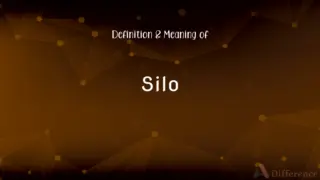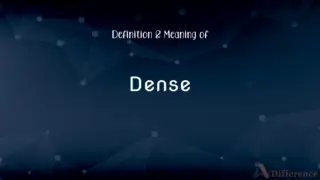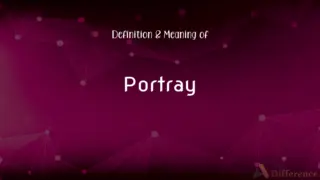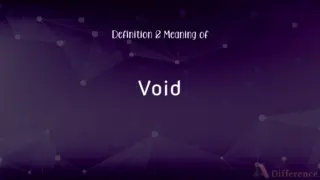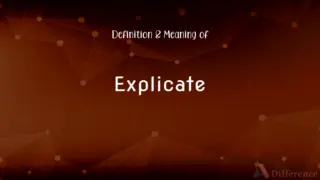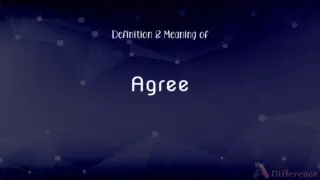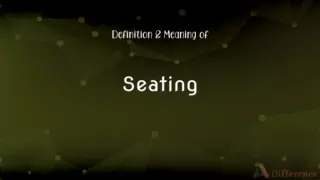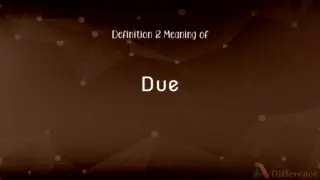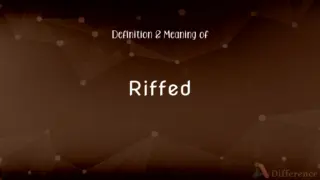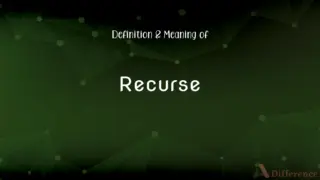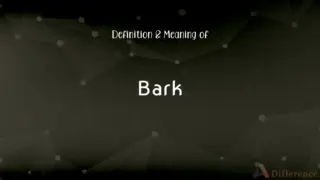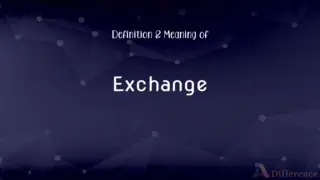Claim Definition and Meaning
By Tayyaba Rehman & Maham Liaqat — Published on March 15, 2024
Claim refers to a statement asserting something as true or a demand for something believed to be due. e.g., He filed a claim for damages after the accident.

Table of Contents
Claim Definitions
Referring to something causing death.
The epidemic has claimed thousands of lives.
A declaration that something belongs to someone.
The prospector made a claim on the gold mine.
To assert a right to something.
He claimed his right to free speech.
To require someone's time or energy.
Her new job claims most of her energy.
Seeking payment from an insurance policy.
After the flood, we submitted a claim to our insurance company.
Asserting something is true without providing proof.
His claim of being a world-class chef is doubtful.
Asking for resources or attention.
The project's complexity claims much of our time.
Requesting something that one believes they are entitled to.
She laid claim to the inheritance.
Utilizing something as necessary.
The emergency claimed all available medical staff.
A statement in court asserting one's right.
The plaintiff's claim was disputed by the defendant.
To demand, ask for, or take as one's own or one's due
Claim a reward.
Claim one's luggage at the airport carousel.
To take in a violent manner as if by right
A hurricane that claimed two lives.
To deserve or call for; require
Problems that claim her attention.
A demand for something as rightful or due.
A basis for demanding something; a title or right.
Something claimed in a formal or legal manner, especially a tract of public land staked out by a miner or homesteader.
A demand for payment in accordance with an insurance policy or other formal arrangement.
The sum of money demanded.
A demand of ownership made for something.
A claim of ownership
A claim of victory
A new statement of something one believes to be the truth, usually when the statement has yet to be verified or without valid evidence provided.
The company's share price dropped amid claims of accounting fraud.
(legal) A legal demand for compensation or damages.
To demand ownership of.
To ask for, or seek to obtain, by virtue of authority, right, or supposed right; to challenge as a right; to demand as due.
To proclaim.
To call or name.
To assert; to maintain.
Ask for legally or make a legal claim to, as of debts, for example;
They claimed on the maximum allowable amount
Lay claim to; as of an idea;
She took credit for the whole idea
Claim Snonyms
Declare
To say something in a solemn and emphatic manner.
He declared his love for her in front of everyone.
Maintain
To assert something over a period of time.
He maintained that he was just at the wrong place at the wrong time.
Proclaim
To announce officially or publicly.
The government proclaimed a state of emergency.
Affirm
To state as a fact; assert strongly and publicly.
He affirmed his commitment to the project.
Allege
To claim or assert that someone has done something illegal or wrong, typically without proof.
He is alleged to have stolen company secrets.
Assert
To state a fact or belief confidently and forcefully.
She asserted her innocence in front of the judge.
Contend
To assert something as a position in an argument.
She contended that the law was on her side.
Argue
To give reasons or cite evidence in support of an idea, action, or theory.
They argue that solar energy is the key to our future energy needs.
Avow
To assert or confess openly.
He avowed that he had made a mistake.
Insist
To demand something forcefully, not accepting refusal.
She insisted on her right to see the documents.
Claim Idioms & Phrases
Jump claim
To take control of something that someone else has claimed.
The competitor tried to jump our claim to the patent.
Lay claim to
To assert one's right to something.
He laid claim to the vacant position, believing he was the most qualified.
No claim to fame
Having nothing that makes one notable or celebrated.
Despite his humility, his inventions were his undeniable claim to fame.
Stake a claim
To assert one's ownership or interest in something.
Entrepreneurs rushed to stake their claims in the new market.
Claim a life
To cause death.
The treacherous mountain has claimed many lives over the years.
Claim to fame
Something that makes a person or thing notable or celebrated.
The small town's claim to fame is its annual flower festival.
Claim victory
To declare oneself the winner.
The underdog team claimed victory in the final seconds of the game.
Put in a claim
To formally request something, often financially.
After the accident, she put in a claim for her injuries.
Claim responsibility
To acknowledge one's role in something, often something negative.
The group claimed responsibility for the peaceful protest.
Beyond all claim
Undoubtedly or unquestionably.
Her talent was beyond all claim, captivating everyone who heard her sing.
Renounce a claim
To formally give up a claim.
The heir renounced his claim to the estate, leaving it to charity.
False claim
A claim that is not true or valid.
The company was fined for making false claims about its product.
Lay no claim
To not assert ownership or right.
She laid no claim to the family fortune, preferring to earn her own way.
Drop a claim
To withdraw a legal claim.
The plaintiff decided to drop the claim after reaching a settlement.
Make no claim
To not assert something as true.
He made no claim about his abilities, preferring his work to speak for itself.
Claim a stake
To assert one's share or interest in something.
Investors rushed to claim a stake in the promising startup.
Undisputed claim
A claim that is not challenged or contested.
Her expertise in the field gave her an undisputed claim to the leadership role.
Press a claim
To insist on the acknowledgment or granting of a claim.
He pressed his claim for recognition of his contributions to the project.
Claim one's life back
To regain control of one's life, especially after a difficult period.
After years of hardship, he finally claimed his life back.
Claim Example Sentences
The warranty covers your claim for a replacement.
Her claim to fame was her unique invention.
They staked a claim on the disputed land.
The insurance claim was processed quickly.
The novel's plot claims the reader's attention from the start.
Historians claim that the artifact is over a thousand years old.
He made a bold claim during the debate.
Many athletes claim the secret is in the training.
His claim to the throne was challenged by rivals.
She plans to file a claim for her lost luggage.
The storm claimed several boats along the coast.
His claim of innocence was finally proven.
The company rejected his claim for compensation.
The job claims all of his focus and energy.
The charity claims to help thousands each year.
Common Curiosities
Why is it called claim?
It's called "claim" because it involves asserting ownership or right to something, often without immediate proof.
How do we divide claim into syllables?
Claim is not divided into syllables as it is a single syllable word.
What is a stressed syllable in claim?
In "claim," the entire word is stressed as it is only one syllable.
How many syllables are in claim?
Claim has one syllable.
How is claim used in a sentence?
Claim is used to assert a right or truth, e.g., She filed a claim for the lost item.
What is the first form of claim?
The first form is "claim," as in "He claims to have seen it."
What is the root word of claim?
The root word of "claim" is the Latin "clamare," which means "to call out" or "to cry out."
What is another term for claim?
Another term for "claim" could be "assertion" or "demand."
What is the verb form of claim?
The verb form is "claim," as in "to claim something."
What is the third form of claim?
The third form is also "claimed," used in perfect tenses.
What is the singular form of claim?
The singular form is "claim."
What is the pronunciation of claim?
Claim is pronounced as /kleɪm/.
What part of speech is claim?
"Claim" can be a noun or a verb, depending on its use in a sentence.
What is the opposite of claim?
The opposite of "claim" could be "disclaim" or "renounce."
Is claim a vowel or consonant?
The word "claim" starts with a consonant.
Is the claim term a metaphor?
"Claim" can be used metaphorically in some contexts.
Which determiner is used with claim?
Determiners like "a," "the," or "my" can be used with "claim" (e.g., "a claim," "the claim," "my claim").
What is the second form of claim?
The second form is "claimed," as in "He claimed to have seen it."
What is the plural form of claim?
The plural form is "claims."
Is claim an abstract noun?
Yes, as a noun, "claim" can be considered abstract because it refers to a concept or idea rather than a tangible object.
Is the word claim a Gerund?
No, "claiming" would be the gerund form of "claim."
Is the word “claim” a Direct object or an Indirect object?
"Claim" can be a direct object (e.g., "He filed a claim").
Which vowel is used before claim?
Vowels like "a" or "the" can precede "claim" depending on the sentence (e.g., "a claim").
Is claim an adverb?
No, "claim" is not an adverb.
Is claim a negative or positive word?
"Claim" is neutral; its connotation depends on the context.
Is claim a countable noun?
Yes, "claim" is a countable noun (e.g., several claims).
Which preposition is used with claim?
Prepositions like "to," "on," or "for" can be used with "claim" (e.g., "claim to fame," "lay claim on," "file a claim for").
Which conjunction is used with claim?
Conjunctions like "and" or "but" can be used with "claim" in compound sentences (e.g., "He made a claim and provided evidence").
Which article is used with claim?
Both "a" and "the" can be used with "claim" depending on the context (e.g., "a claim," "the claim").
Is claim a collective noun?
No, "claim" is not typically used as a collective noun.
Is the word claim imperative?
The word "claim" can be used in imperative sentences (e.g., "Claim your prize").
Is claim a noun or adjective?
"Claim" can be a noun; it is not an adjective.
Share Your Discovery
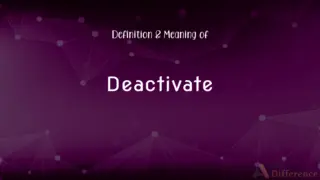
Previous Term
Deactivate Definition and Meaning
Next Term
School Definition and MeaningAuthor Spotlight
Written by
Tayyaba RehmanTayyaba Rehman is a distinguished writer, currently serving as a primary contributor to askdifference.com. As a researcher in semantics and etymology, Tayyaba's passion for the complexity of languages and their distinctions has found a perfect home on the platform. Tayyaba delves into the intricacies of language, distinguishing between commonly confused words and phrases, thereby providing clarity for readers worldwide.
Co-written by
Maham Liaqat







